Hydration Tips for Older Adults

Are Your Loved Ones Drinking Enough? Why Hydration Matters More Than Ever for Older Adults in South Manchester
As July brings warmer days across South Manchester, staying hydrated becomes essential, especially for older adults receiving care at home. Whether your loved one is living with dementia, Parkinson’s, or limited mobility, drinking enough fluids is crucial to maintaining health, independence, and comfort. At Home Instead South Manchester, we help older adults stay well by weaving hydration into everyday care. From water-rich meals to simple daily prompts, supporting hydration is one of the most effective ways to protect wellbeing throughout the summer.
In this blog, we explore the reasons why older people often struggle to stay hydrated, how to spot the signs of dehydration, and the foods, drinks, and routines that make hydration easier and more enjoyable.
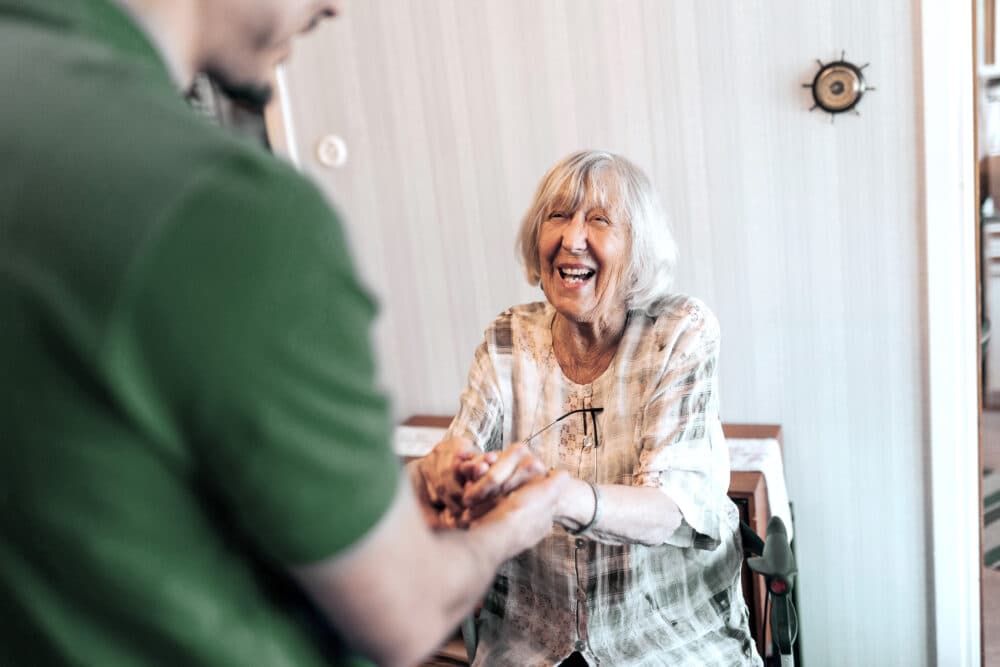
Why Staying Hydrated Gets Harder With Age
As we get older, our bodies become less efficient at managing fluids. But the challenge is more than biological. Several overlapping factors can make it harder for older people to drink enough each day:
Reduced Thirst Sensation
The sensation of thirst becomes less reliable with age. That means many older adults don’t realise they’re becoming dehydrated until symptoms appear, often when their fluid levels are already below optimal.
Medication Side Effects
Common medications for high blood pressure, diabetes, or heart disease can lead to increased fluid loss. Diuretics (often called water tablets), in particular, flush fluids from the body, but may not come with clear instructions to increase drinking.
Mobility and Access
For those with arthritis, limited strength, or reduced mobility, getting up to fetch a drink can be difficult. If someone lives alone, they may not want to keep going back and forth, especially if they’re already tired or feeling unwell.
Fear of Incontinence
Worries about bladder control or needing the toilet too often may lead some people to limit their fluid intake on purpose, which can unintentionally reduce intake further of dehydration and greater health risks.
Dementia or Cognitive Impairment
Older adults with dementia may not remember to drink or recognise they are thirsty. Some may even forget where drinks are kept or lose interest in fluid intake altogether. This makes gentle encouragement and support even more important.
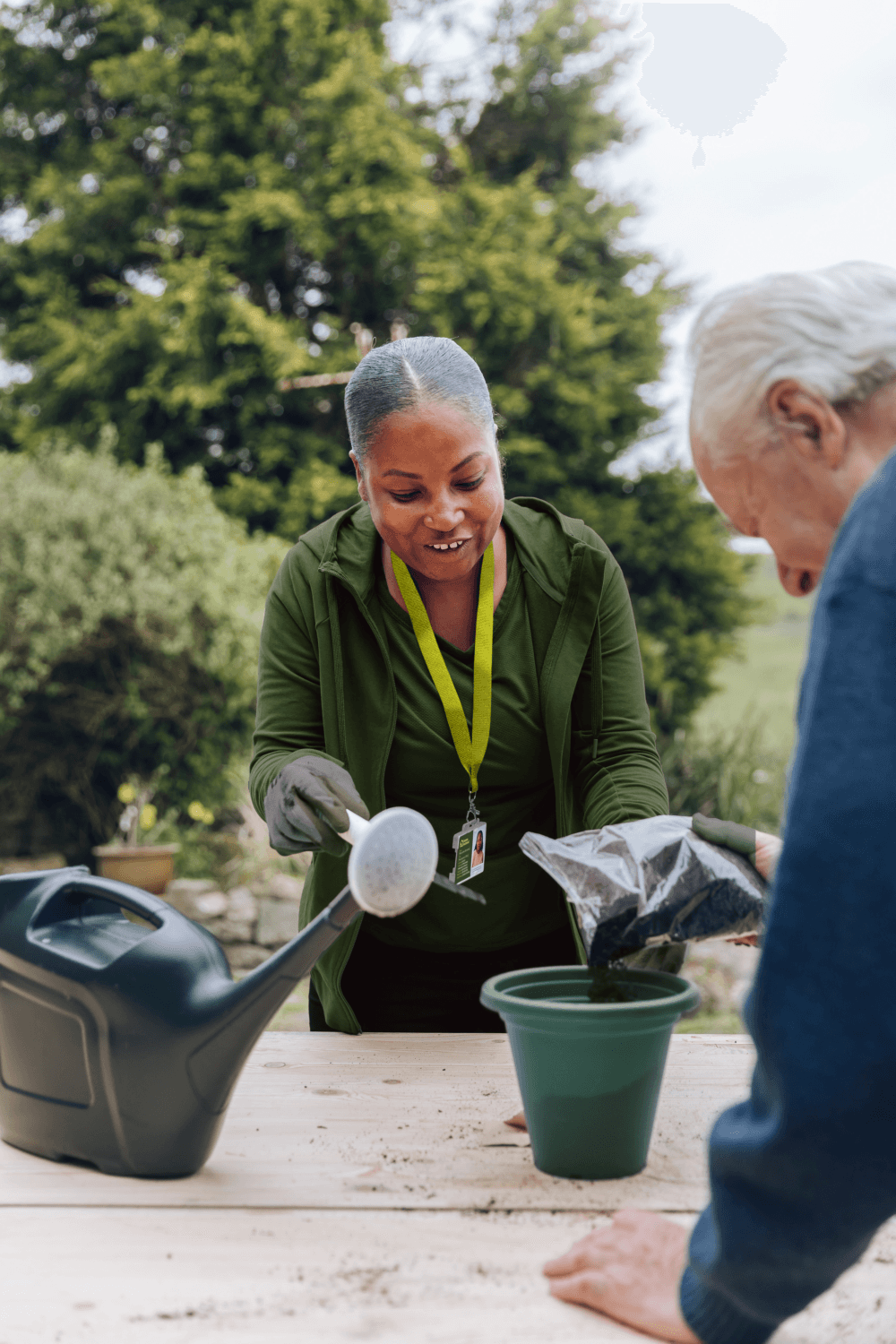
Recognising the Warning Signs of Dehydration
Spotting dehydration early is critical, particularly for those in care or with underlying health conditions. Look out for:
- Dry mouth or cracked lips
- Strong-smelling, dark yellow urine
- Constipation
- Fatigue or sleepiness
- Dizziness or feeling light-headed
- Confusion or irritability
- Headaches or muscle cramps
- Reduced urination
In more serious cases, dehydration can cause a rapid heart rate, low blood pressure, delirium, or even loss of consciousness. That’s why it’s so important for carers, whether family or professionals, to keep an eye on these symptoms and act quickly.
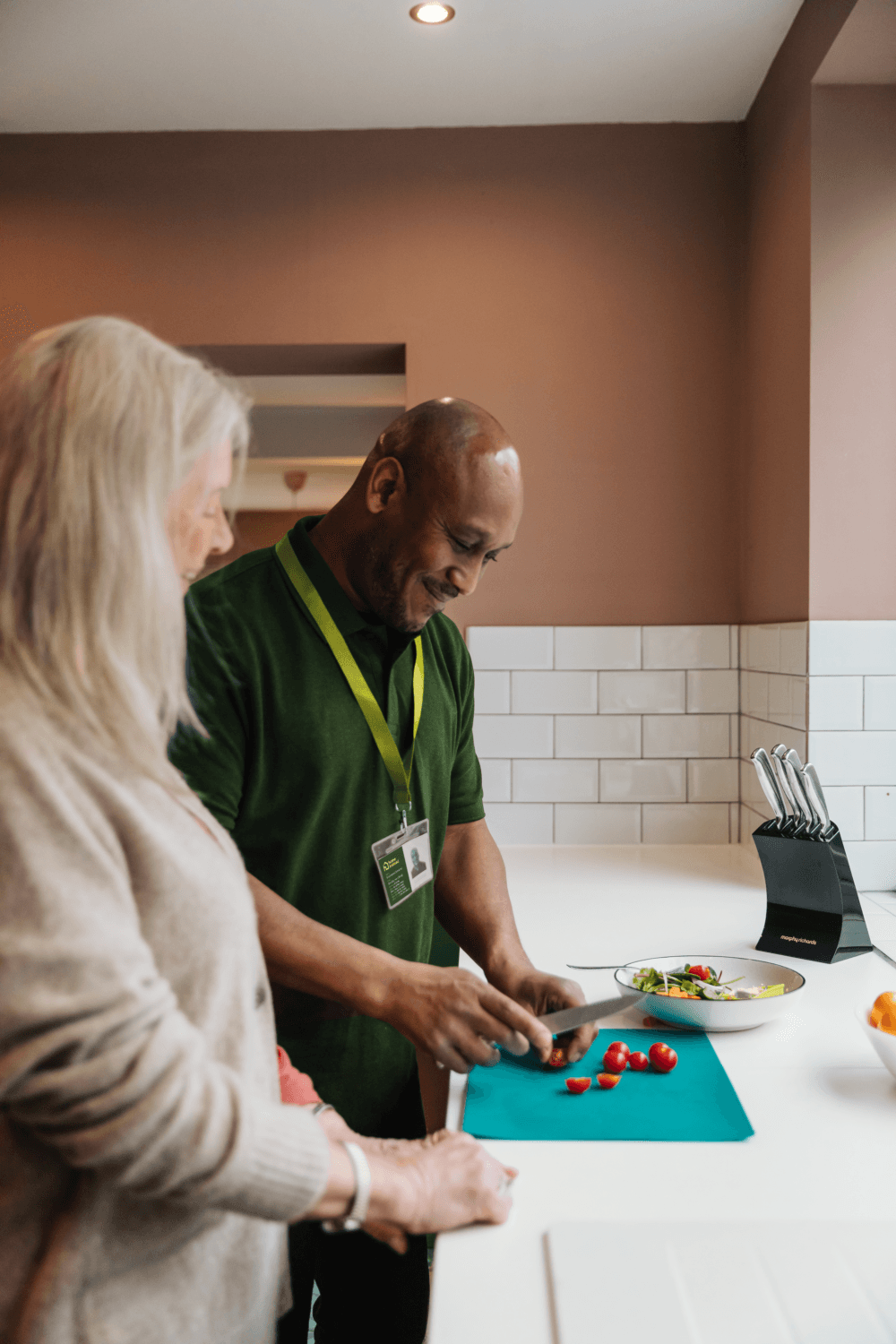
The Serious Risks of Dehydration in Later Life
Hydration isn’t just about comfort, it directly affects how well the body functions. For older adults, not drinking enough increases the risk of:
- Falls: Dehydration can cause dizziness and low blood pressure, making falls more likely, especially dangerous for frail individuals.
- Hospital Admissions: People who are dehydrated often recover more slowly from illness and are more likely to need hospital care.
- Urinary Tract Infections (UTIs): These are more common and severe in those who don’t drink enough, and can lead to hospitalisation or delirium.
- Kidney Strain: Long-term dehydration puts pressure on the kidneys, which can cause permanent damage over time.
- Cognitive Changes: Even mild dehydration can affect memory, attention, and mood, worsening symptoms for those already living with dementia.
- Slow Healing and Skin Damage: Poor hydration affects skin integrity, increasing the risk of pressure sores or infections.
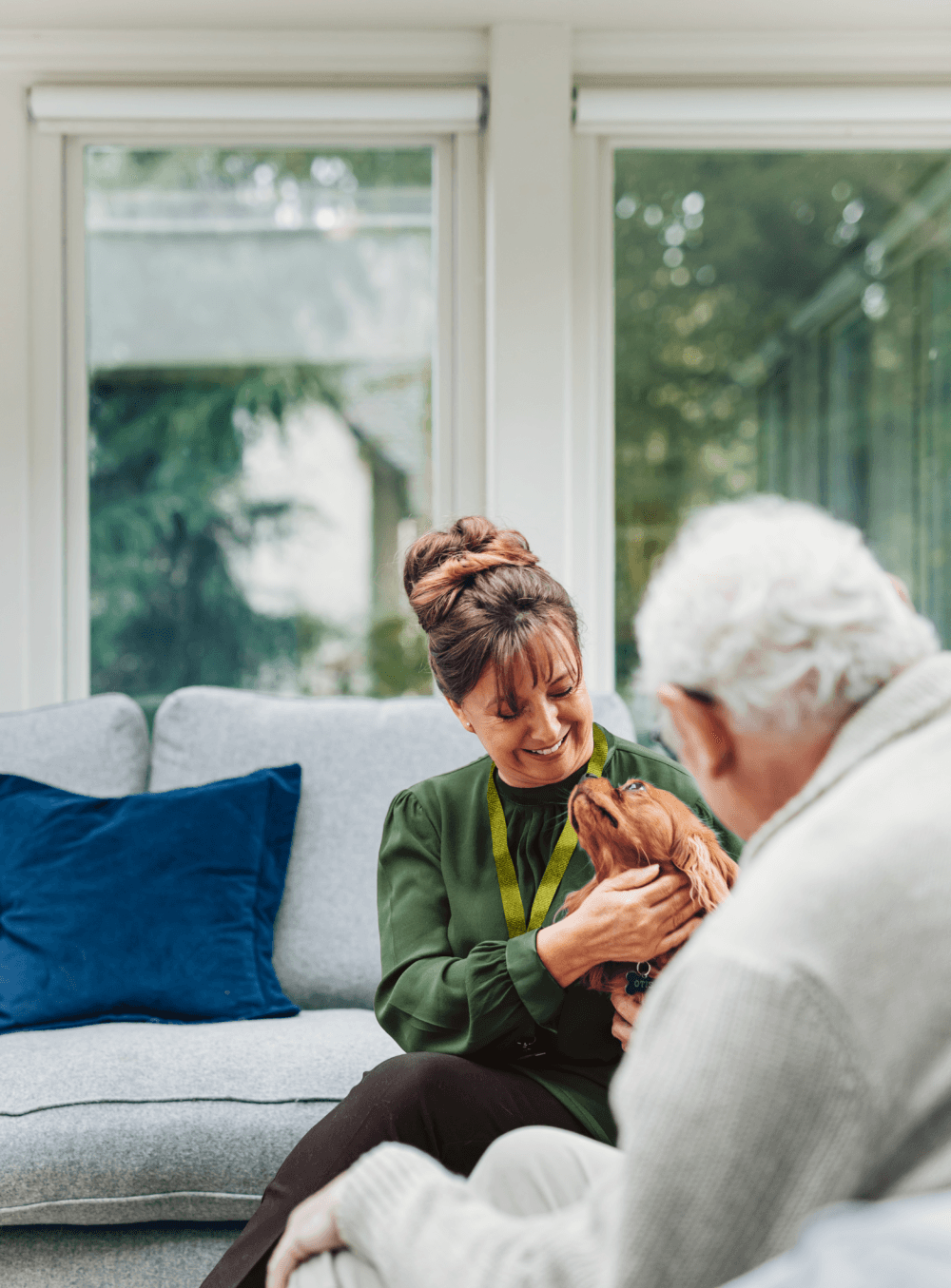
The Best Ways to Stay Hydrated — Without Making It a Task
Thankfully, improving hydration doesn’t have to mean guzzling litres of water. Here’s how to make it easier and more enjoyable:
1. Build a Simple Daily Routine
Encourage regular drinking at key times:
- First thing in the morning
- With meals
- Mid-morning and mid-afternoon
- Before bedtime
Setting gentle reminders, offering drinks during TV time or activities, or placing visual cues around the home (like a jug of water by the chair) can help make drinking second nature.
2. Make Fluids Easy to Reach
Keep drinks nearby, especially if someone has mobility issues. Spill-proof cups with straws or handles can help. For those with shaky hands, try using smaller cups that feel easier to lift.
3. Use Food to Support Hydration
Drinking isn’t the only way to stay hydrated. Many foods are packed with water and are easier to consume for those with low appetite:
- Watermelon, strawberries, oranges
- Cucumber, courgette, tomatoes
- Soup, broth, and stews
- Jelly, ice lollies made with real fruit juice
- Smoothies and yoghurt drinks
At Home Instead South Manchester, we often encourage water-rich snacks like fresh fruit or chilled smoothies between meals, especially helpful during hot weather or illness.
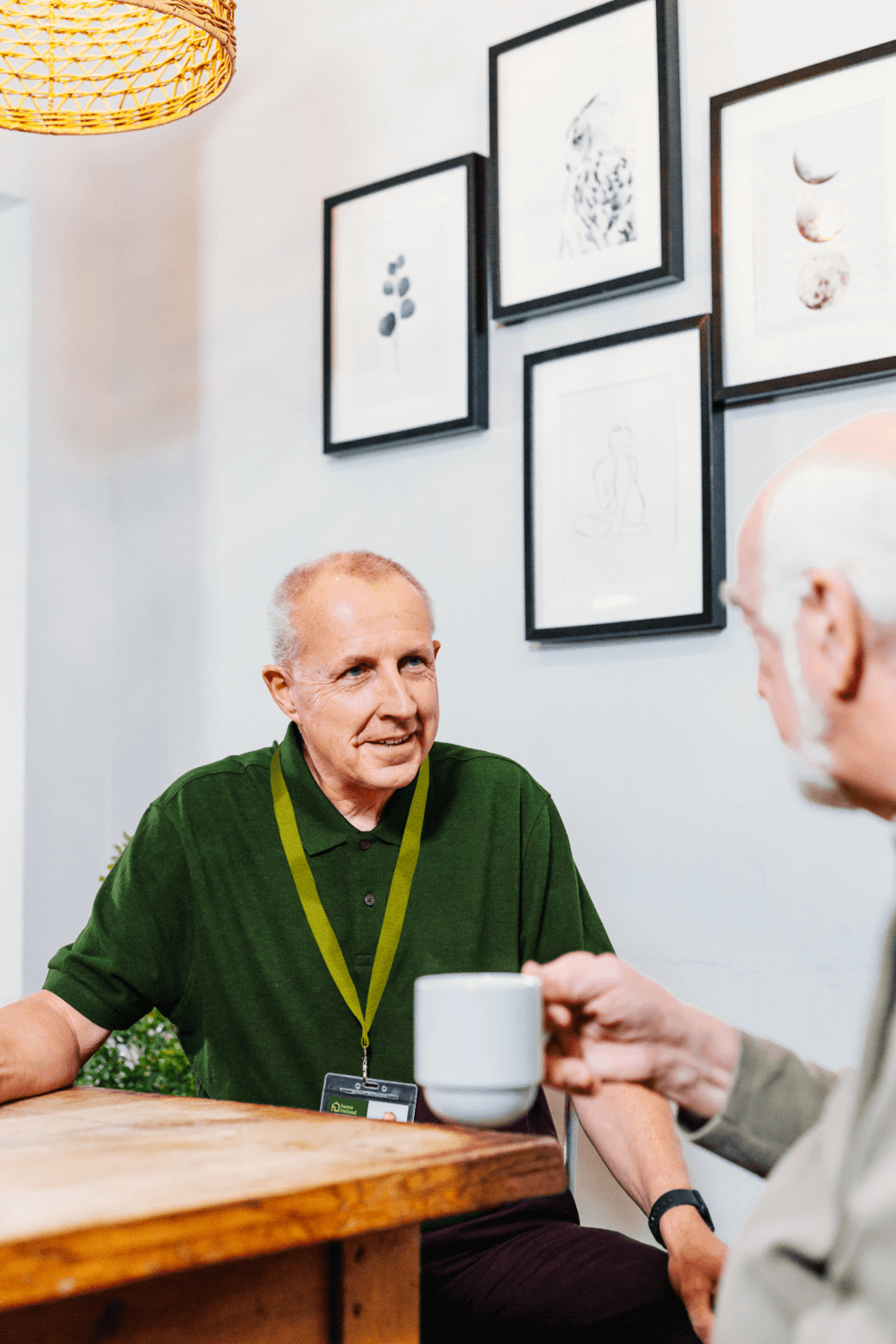
Drinks and Foods to Avoid or Limit
While some drinks may seem hydrating, others can have the opposite effect:
- Caffeinated drinks like strong tea or coffee can increase fluid loss if consumed in excess.
- Alcohol, including beer and wine, acts as a diuretic and should be limited, particularly in warm weather.
- Salty snacks (crisps, processed meals) can make dehydration worse and increase thirst, especially if someone then doesn’t drink enough afterwards.
Encouraging more balanced snacks, such as fresh fruit, unsalted nuts, or oatcakes with hummus, can help reduce this risk.
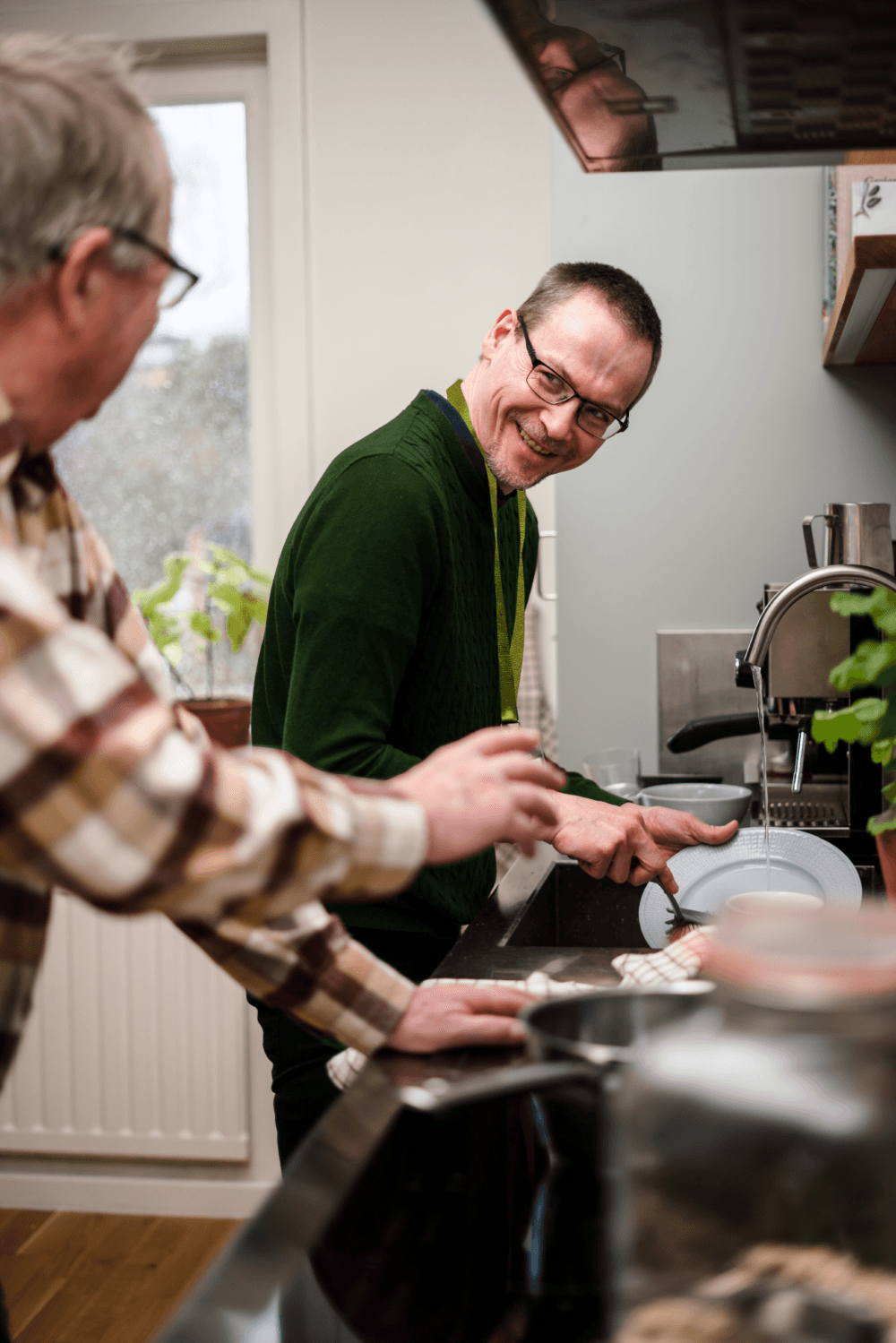
How Home Instead South Manchester Supports Hydration
In our home care visits, hydration is a key focus, especially for those with dementia, Parkinson’s, or who are recovering from illness. We help by:
- Encouraging small, regular sips
- Preparing water-rich meals
- Supporting fluid intake around medication times
- Keeping drinks within reach
- Helping clients track their intake when needed
- Noticing early warning signs of dehydration
For families who can’t be there all day, this support brings peace of mind, knowing that your loved one is cared for in a consistent, compassionate way.
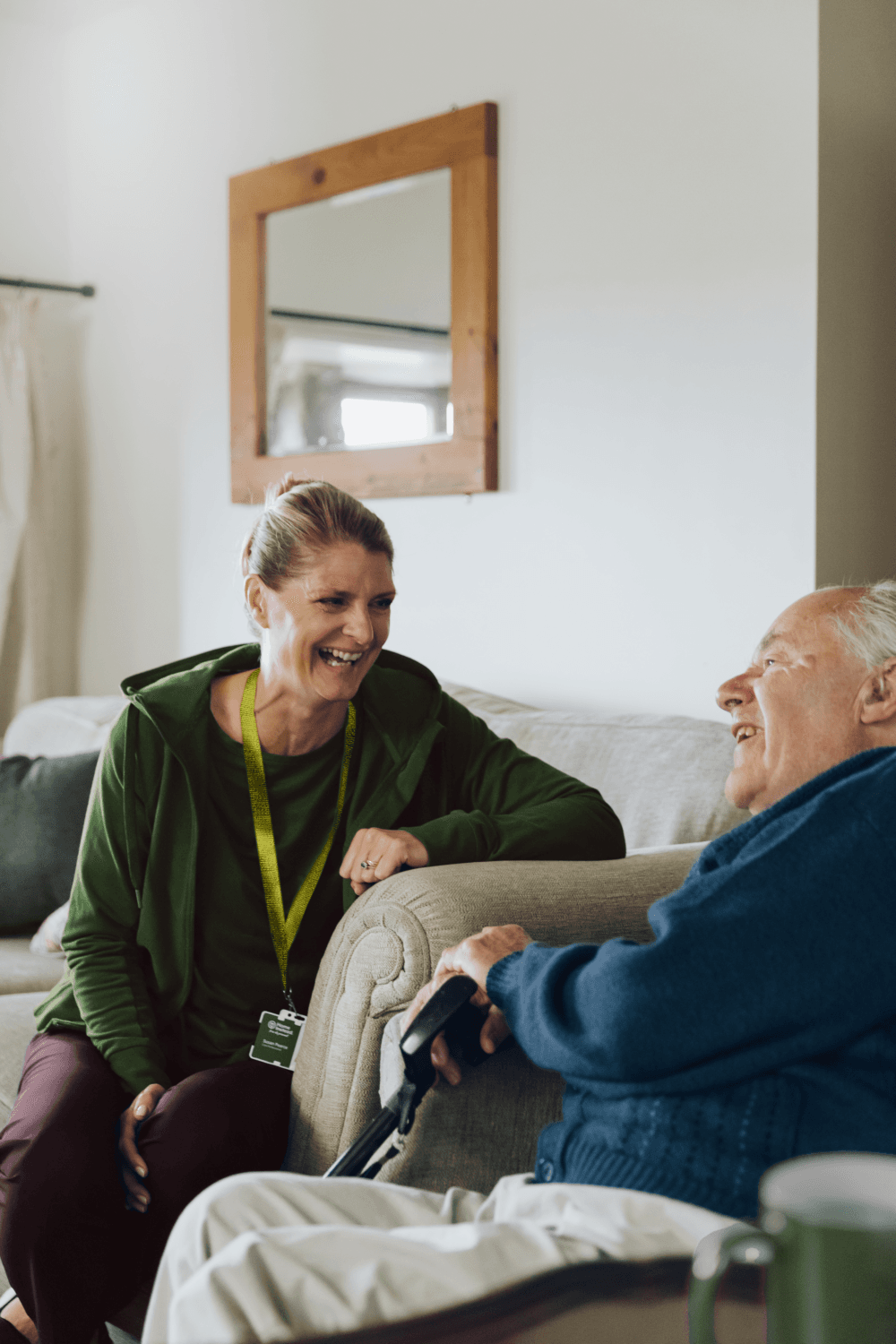
Community Action: Hydration Is Everyone’s Responsibility
In South Manchester, community groups, health professionals and care organisations are working together to tackle the hidden dangers of dehydration. The Manchester Local Care Organisation has teamed up with groups like Age UK Salford to support hydration education, including during national events like Nutrition and Hydration Week.
Local efforts include:
- Cooking workshops focused on hydration-friendly meals
- Mocktail sessions for residents who want non-alcoholic social drinks
- Resources like Age UK’s “Eat, Drink, Live Well” booklet
- Special support for people with memory loss or difficulty swallowing
These local actions help make hydration something enjoyable, not clinical, for older people and their families.
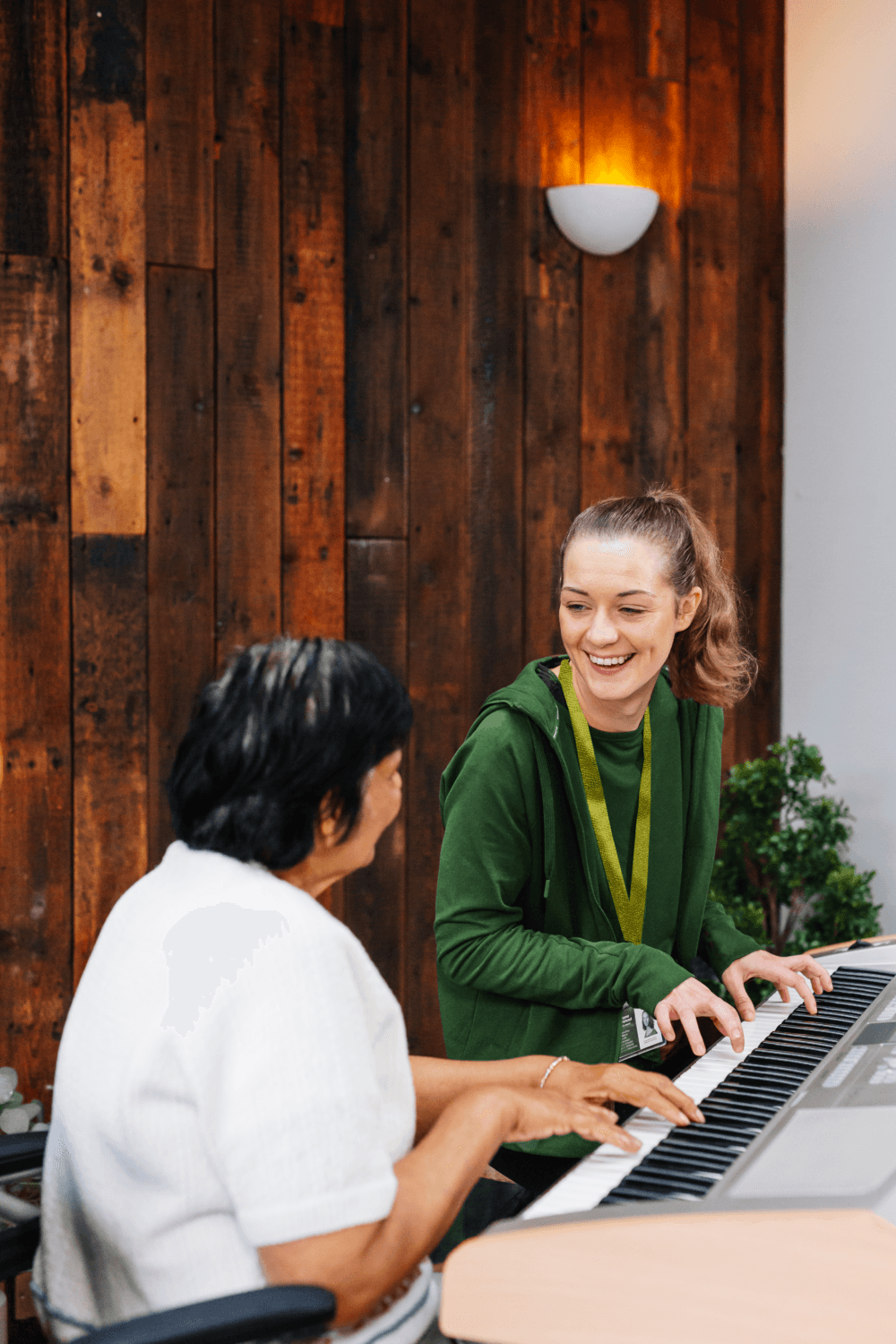
FAQs About Hydration for Older Adults
How much should an older person drink daily?
Roughly 1.5 to 2 litres (6–8 cups) is recommended, depending on health and activity levels.
Do tea and coffee count?
Yes, but it’s best to balance caffeinated drinks with plenty of water or herbal tea.
What if someone refuses to drink?
Try different fluids, serve them chilled, and make it a social activity. Using colourful cups or fun straws can also make a difference.
Is dehydration serious?
Very. It can cause UTIs, confusion, kidney problems, falls, and hospital stays.
How can carers help?
Offer drinks often, avoid salty foods, track urine colour (aim for pale yellow), and include hydrating snacks throughout the day.
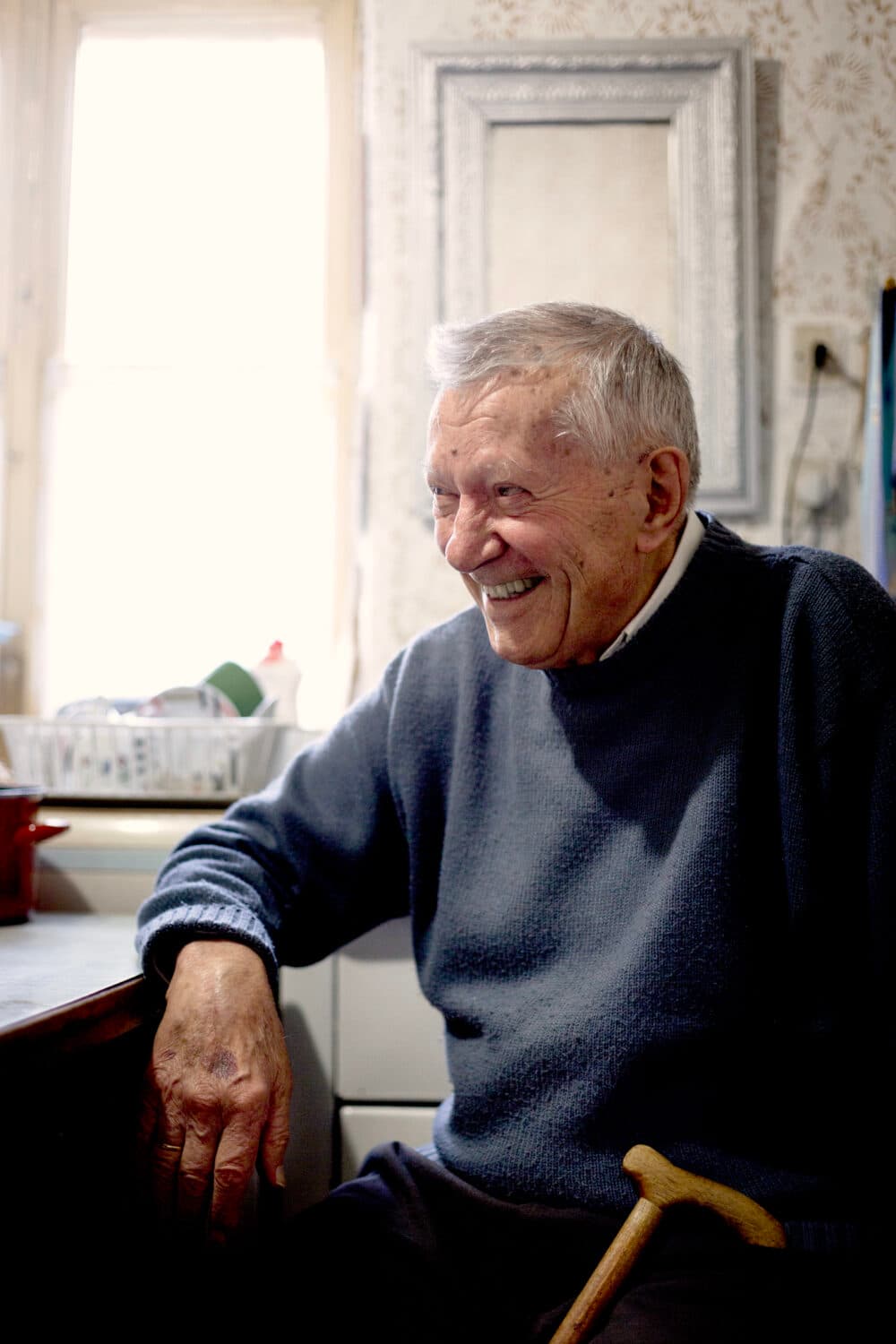
Final Thoughts: Every Sip Matters
Helping an older person stay hydrated isn’t just about ticking a box, it’s about protecting their health, dignity, and comfort.
At Home Instead South Manchester, we believe that small steps, like offering a cup of tea or preparing a fruity smoothie, can make a big difference. Whether you’re a family member, a friend, or part of a care team, staying alert to hydration needs helps prevent serious illness and keeps daily life more comfortable.
Need help supporting a loved one at home? Our care professionals are trained to provide thoughtful, consistent, hydration-focused support alongside personal care, dementia assistance, and companionship.
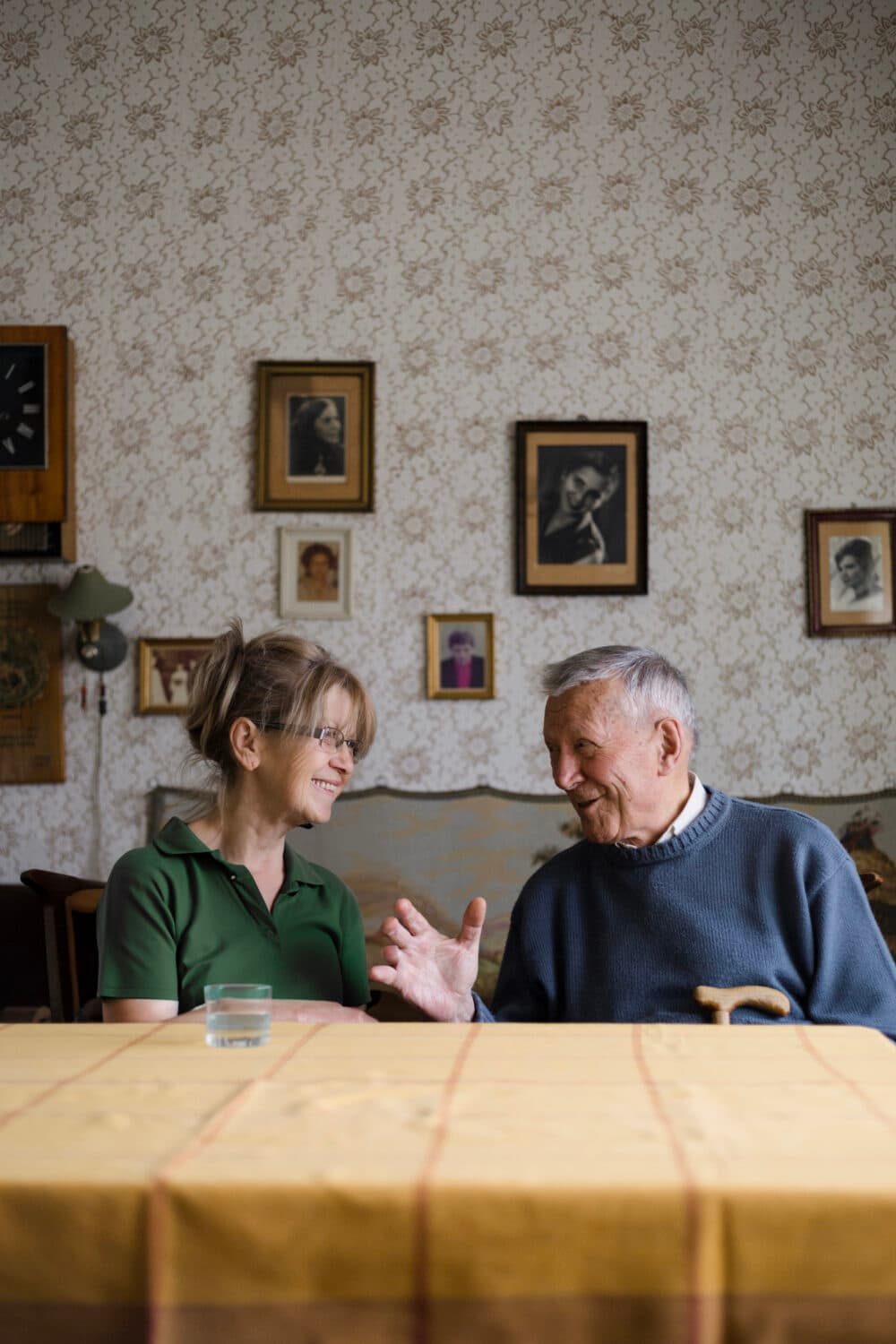
Areas We Serve
Whalley Range, Didsbury, Withington, Burnage, Fallowfield, Old Trafford, Stretford, Urmston, Davyhulme, Flixton, and the Surrounding areas
M14 4, M14 5, M14 6, M14 7, M16 0, M16 7, M16 8, M16 9, M17 1, M17 8, M19 1, M19 2, M19 3, M20 1, M20 2, M20 3, M20 4, M20 5, M20 6, M21 0, M21 7, M21 8, M21 9, M31 4, M32 0, M32 8, M32 9, M41 0, M41 5, M41 6, M41 7, M41 8, M41 9
289 Barlow Moor Rd, Chorlton-cum-Hardy, Manchester M21 7GH, UK